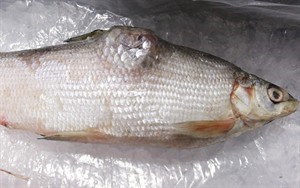
Scientist links crude oil to fish deformities, asks Canada to investigate
OTTAWA – A renowned Canadian scientist says there appear to be similarities between fish deformities found downstream from Alberta’s oilsands and those observed after the Exxon Valdez oil spill in Alaska and Florida’s Deepwater Horizon disaster.
David Schindler of the University of Alberta has written two federal cabinet ministers pointing out the research similarities.
He’s proposing that some chemical or suite of chemicals found in crude oil may be causing the malformations, and he’d like to see Canada take the lead in researching the issue.
In a letter to Fisheries Minister Keith Ashfield and Environment Minister Peter Kent, Schindler says the federal Experimental Lakes Area in northwestern Ontario would be ideal for studying specific chemical impacts on fish in the wild.
Ottawa announced last year that it was closing the Experimental Lakes Area, a remote region of 58 pristine lakes that have been used since 1969 for groundbreaking freshwater studies.
The closure of the world-famous facility will save the federal government $2 million annually — a move that scientists have called inexplicable, given the scientific value of the lakes area.
Join the Conversation!
Want to share your thoughts, add context, or connect with others in your community? Create a free account to comment on stories, ask questions, and join meaningful discussions on our new site.














Leave a Reply
You must be logged in to post a comment.